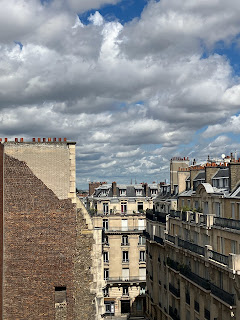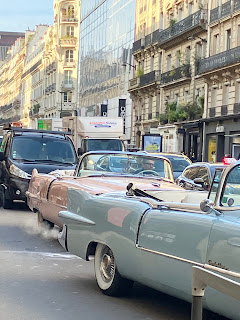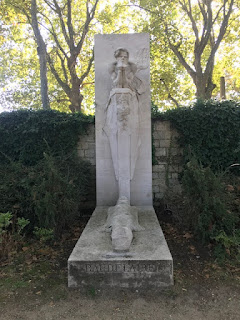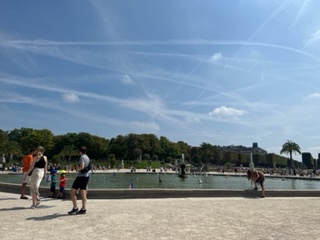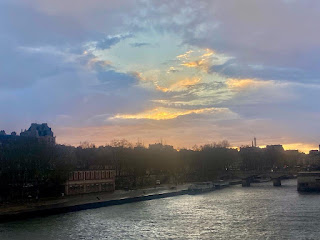30 April - 31 May 2023
Our time in the Poetry Garrett and in Paris was nothing short of phenomenal. We arrived at the end of the pension protests at the end of April 2023 and were immediately astonished by the energy of a contemporary workers’ movement that engulfed the metropolis, a massive worker-led movement that would be hard to find in the United States these days.
That set the tone for the rest of our time in Paris, as we discovered time and again that Parisians daily fight an encroaching “spiritual death,” as one friend back home in the States called it, that comes with exhortations to endless work, to austerity, to self-abnegation, to the “good enough” life. This, at least, was our impression of Paris, coming from a difficult year in New York. All this inevitably made it into our poetry, as Ethan edited his first collection of poems into a book and Becca wrote new poems inspired by watching the low sky rumble across the Poetry Garret’s window, the easefulness in the quiet corners of the Luxembourg Gardens, the daily pleasures that Parisians take to keep a feeling of equilibrium, to slow down, even to stay put at a cafe for hours into the night, the sense that one knows how to live well rather than merely live — these were the things we gravitated toward and tried to express in our poetry.
We took turns writing at the kitchen table and on the couch — Elizabeth was kind enough to allow both of us to stay in the Garret at the same time! When we took breaks from writing, it was to eat dinners by the Seine, to walk the hills of Montmartre, to immerse ourselves in what we were reading at the time (Hegel and Henry James), to wander through architecturally and visually-stunning streets that were already steeped in an atmosphere of poetry, and to enjoy the quiet din of a sunny Paris afternoon in May. To have had the time and space and spirit to return to poetry for both us was an amazing gift. Thank you, Elizabeth Hansen and Rebecca Molloy, for making this residency possible!

